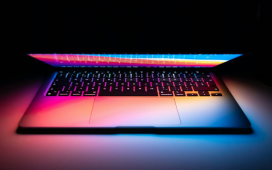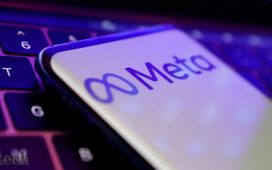Few industries have better insight into the day-to-day changes in consumer attitude and behavior than the makers of toothpaste, toilet paper, and potato chips.
Below are highlights from Q1 earnings calls that took place this week with executives of major consumer packaged goods companies, as they navigate a rapidly changing economy.
Tariffs
Procter & Gamble, the maker of Crest toothpaste, Bounty paper towels, and Tide laundry detergent, anticipates tariffs to push its annual costs up by $1.5 billion. CFO Andre Schulten described the amount as “not immaterial.”
Soap and toothpaste manufacturer Colgate-Palmolive, meanwhile, is bracing for an estimated $200 million hit from tariffs this year.
PepsiCo CFO James Caulfield admitted that the eye-watering import duties constituted “news since we gave our initial guidance at the beginning of the year.” But, he told analysts, the maker of Pepsi, Mountain Dew, and Lays had “mitigation plans” in place “based on what we know about tariffs now.”
Kimberly-Clark CEO Michael Hsu acknowledged that “the breadth and degree of tariffs… has changed significantly since maybe where we were at the end of the last quarter.” It’s just a “very volatile environment,” he added.
CFO Nelson Urdaneta, however, sounded an encouraging note by stating the company—maker of pulp-based products including Kleenex, Huggies, and Scott paper towels—gets most of its raw materials from America: “80% of our total costs… are U.S.-based,” he said. “So only 20% of our U.S. costs are exposed to tariffs.”
Fernando Fernandez, CEO of Unilever, noted that while tariffs will have limited impact on the company due to its local supply chains, other concerns persist. “The wider macroeconomic uncertainty will pose some risk and challenges to consumer confidence,” he said.
Pricing
Given the current financial pressure on businesses from tariffs and other factors, many executives implied price hikes were inevitable.
Nestlé, the company behind Kit Kat and Nespresso, raised prices 2.1% during its latest quarter to help offset the cost of cocoa and coffee. Unilever, the maker of Dove and Hellmann’s, increased prices 1.7%.
During his earnings call, PepsiCo CEO Ramon Luis Laguarta tread carefully on the question of price increases. The snack and beverage giant is aware that “consumers are feeling more challenged with their disposable income,” he said. Because shoppers are looking mainly for value, “we’re putting more emphasis on… entry price points and making sure that we’re not asking for a large amount of money for participating in our brands,” he said.
Kimberly-Clark appears to be holding the line on price hikes for now. CEO Hsu said he’s seen a consumer “migration” toward “more affordable price package sizes,” adding that “budgets are going to be tight. And so affordability for us is core to our strategy.”











